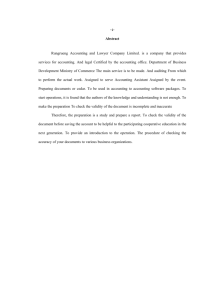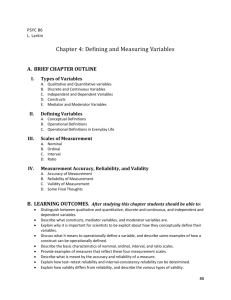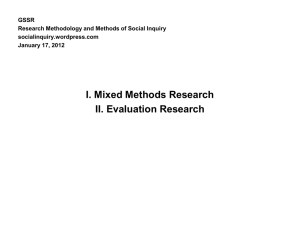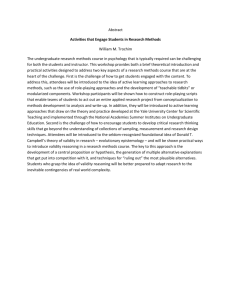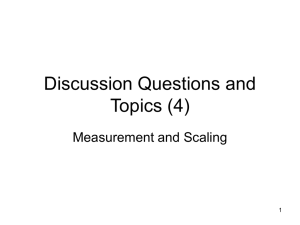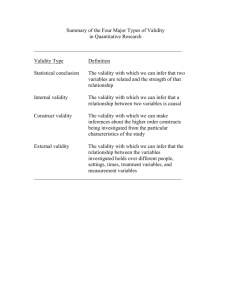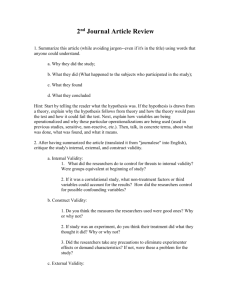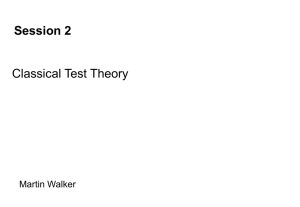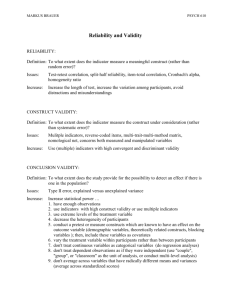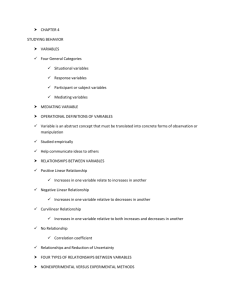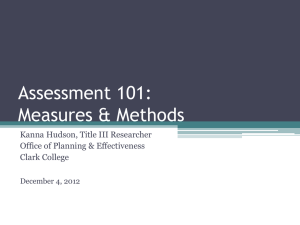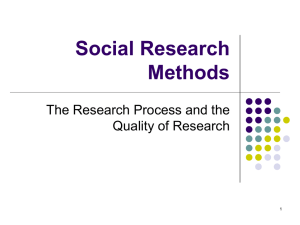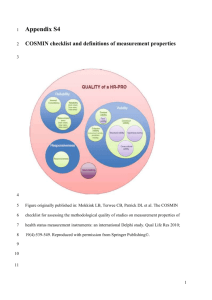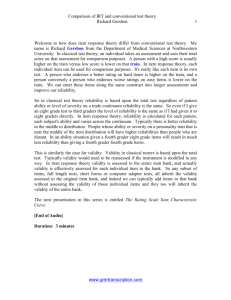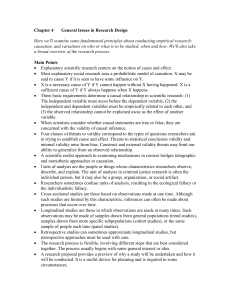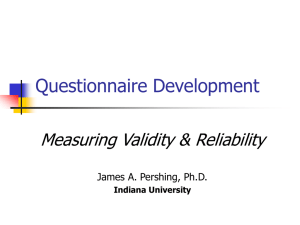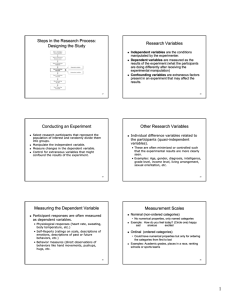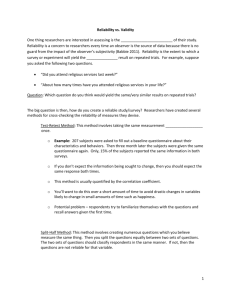KEY TERMS
advertisement
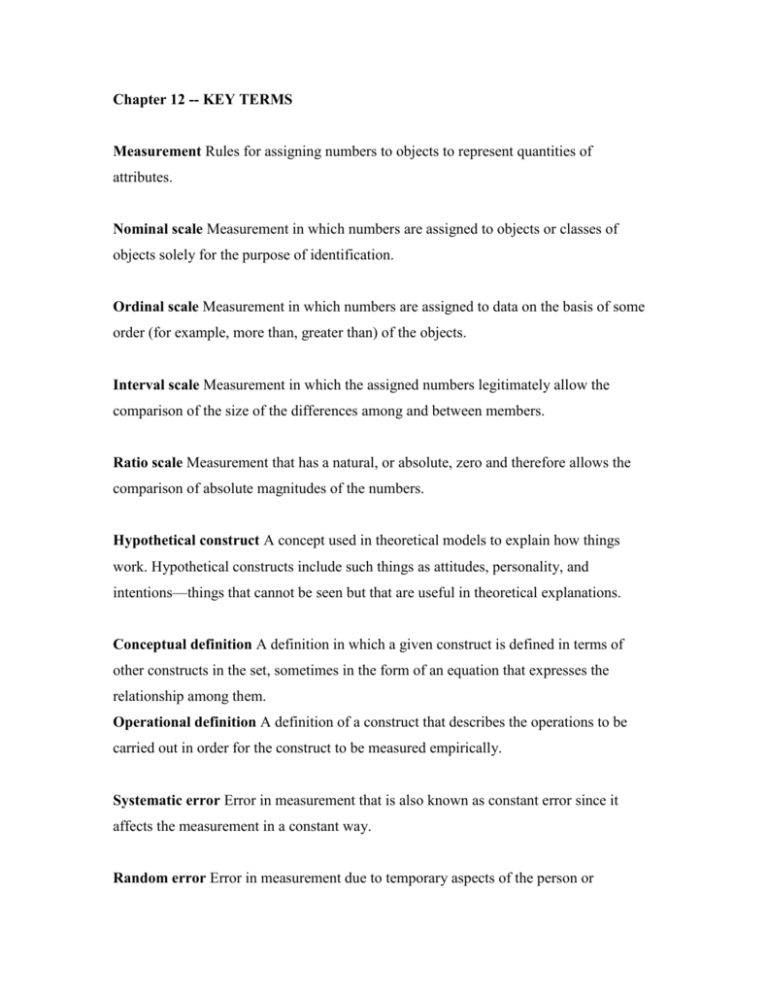
Chapter 12 -- KEY TERMS Measurement Rules for assigning numbers to objects to represent quantities of attributes. Nominal scale Measurement in which numbers are assigned to objects or classes of objects solely for the purpose of identification. Ordinal scale Measurement in which numbers are assigned to data on the basis of some order (for example, more than, greater than) of the objects. Interval scale Measurement in which the assigned numbers legitimately allow the comparison of the size of the differences among and between members. Ratio scale Measurement that has a natural, or absolute, zero and therefore allows the comparison of absolute magnitudes of the numbers. Hypothetical construct A concept used in theoretical models to explain how things work. Hypothetical constructs include such things as attitudes, personality, and intentions—things that cannot be seen but that are useful in theoretical explanations. Conceptual definition A definition in which a given construct is defined in terms of other constructs in the set, sometimes in the form of an equation that expresses the relationship among them. Operational definition A definition of a construct that describes the operations to be carried out in order for the construct to be measured empirically. Systematic error Error in measurement that is also known as constant error since it affects the measurement in a constant way. Random error Error in measurement due to temporary aspects of the person or measurement situation and which affects the measurement in irregular ways. Validity The extent to which differences in scores on a measuring instrument reflect true differences among individuals, groups, or situations in the characteristic that it seeks to measure, or true differences in the same individual, group, or situation from one occasion to another, rather than systematic or random errors. Reliability Ability of a measure to obtain similar scores for the same object, trait, or construct across time, across different evaluators, or across the items forming the measure. Predictive validity The usefulness of the measuring instrument as a predictor of some other characteristic or behavior of the individual; it is sometimes called criterion-related validity. Content validity The adequacy with which the important aspects of the characteristic are captured by the measure; it is sometimes called face validity. Construct validity Assessment of how well the instrument captures the construct, concept, or trait it is supposed to be measuring.
